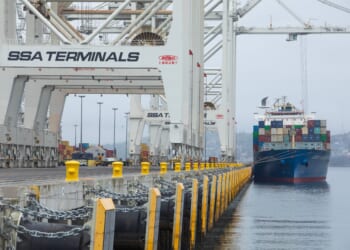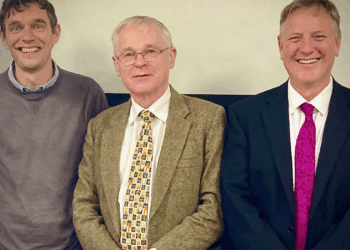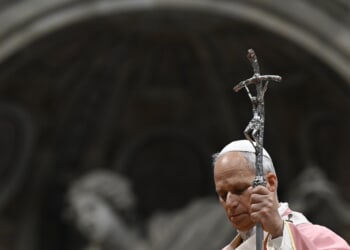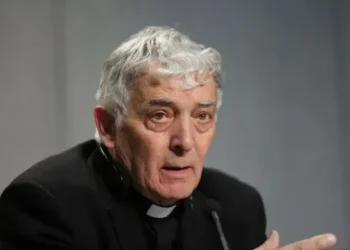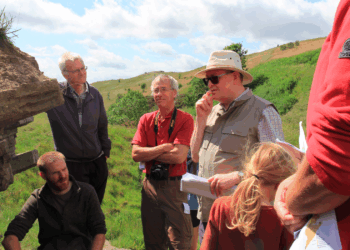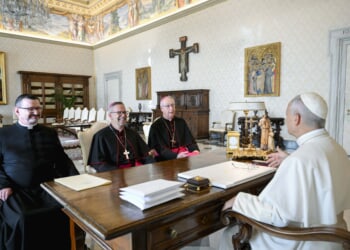The 2025 Nobel Peace Prize has gone to María Corina Machado, one of the most prominent faces of Venezuelan opposition. The committee’s language is familiar — “rights,” “peaceful transition” — but the story behind it is not. Machado’s record combines volunteer election networks with long-running feuds over foreign funding which antedate Maduro; her name has appeared in cases allegedly tied to efforts to unseat the government — charges she rejects.
If the Nobel Peace Prize still holds any measure of significance, Trump should have won — without hesitation.
The award lifts an internal struggle onto a global stage and drops it into a fresh context: for much of the year, chatter about a “Nobel for Trump” hung in the air, and the very idea of what counts as peacemaking is once again up for debate far beyond Caracas.
From Steel Dynasty to Political Underground
María Corina Machado is an engineer by training and a figure in Venezuela’s opposition over the past two decades. Born in Caracas to a family linked to the industrial group SIVENSA, she studied at the Andrés Bello Catholic University and later at IESA, Venezuela’s leading management school. Early exposure to the family business and an affinity for market-friendly ideas shaped her public profile: an emphasis on entrepreneurship, privatization, and integration with global markets.
Her biggest surge in politics came in 2023, when she won opposition primaries by a wide margin. Banned from running in federal elections, she and her team faced inspections and arrests. Since 2024, Machado has been largely absent from public events; her statements come via video with her whereabouts undisclosed.
Why Oslo Chose Her
In announcing its decision, the Nobel Committee said it was honoring María Corina Machado “for her tireless work promoting democratic rights for the people of Venezuela and for her struggle to achieve a just and peaceful transition from dictatorship to democracy.”
The Nobel announcement landed amid one of the most charged moments in U.S. – Venezuela relations in years. The Trump White House has initiated a military intervention strategy as a “war on narcotics” and a push to restore regional stability — with an eye directed at Maduro’s Venezuela.
Against that backdrop, the Nobel Prize for Machado carries added meaning. For those on the “left,” it looks like moral recognition of a dissident whose cause aligned with the language of freedom and democratic rights.
For much of the year, Washington hummed with talk of a “Nobel for Trump.” Supporters pointed to a record of accomplishments that few modern leaders could match. The Abraham Accords, signed during his first term, had already redefined Israel’s ties with its neighbors.
Machado’s recognition is notable given the growing number of voices throughout the past year that called for the American president to receive the prize. The leaders of the governments of Israel, Cambodia, Rwanda, Pakistan, Armenia, Azerbaijan, and Gabon have all publicly stated they would support Trump receiving the prize, recognizing his role in ending conflicts in Nagorno-Karabakh, the Democratic Republic of the Congo (DRC), and now the Israeli-Hamas war. Moreover, he is credited with having stopped wars between Thailand and Cambodia and the real possibility of war between nuclear-armed India and Pakistan.
Mostly unmentioned but perhaps most significantly, Trump’s destruction of the Iranian nuclear program must be credited with being the most potent action against nuclear proliferation and regional instability in decades.
When the Oslo announcement finally came, the first official reaction was from White House communications director Stephen Cheung, who wrote on X: “President Trump will continue making peace deals, ending wars, and saving lives. The Nobel Committee proved they place politics over peace.”
The response inside the administration captures the reality of what happened — the award to Machado was meant to send a political message rather than recognize concrete results.
Asked about the decision during a press conference in Tajikistan, even Russian President Vladimir Putin took a more measured view: “Whether the current U.S. president deserves the Nobel Prize, I don’t know,” he said, “but he really does a lot to resolve long-standing crises that have dragged on for years or even decades.”
Putin added that the Nobel Committee had previously given the Peace Prize to people who had “done nothing for peace,” a remark that many interpreted as both an acknowledgment of Trump’s efforts and a subtle critique of the committee’s politics.
A Symbolic Jab at Trump?
For many observers, the decision in Oslo was less about the politics of Machado than about the ongoing tug-of-war between Donald Trump and the modern liberal establishment.
Trump represents the opposite of what the Nobel Committee traditionally rewards. He stands for a more forceful, nationalistic approach to international politics, not the liberal globalism Oslo prefers.
The Peace Prize long ago turned into a political award for loyalty to the global liberal order — exactly what Trump has spent his career challenging.
If the Nobel Peace Prize still holds any measure of significance, Trump should have won — without hesitation. As the Nobel Prize website itself states: “With regard to the Peace Prize, the will of Alfred Nobel stipulated that it was to be awarded to the person “who shall have done the most or the best work for fraternity between nations, for the abolition or reduction of standing armies and for the holding and promotion of peace congresses.”
Only Donald J. Trump satisfies that criteria today.
Trump the Anti-Hero
No doubt Machado is fighting for a worthy cause, but she is a participant in a domestic political fight, not a peacemaker ending global conflicts. Yet, it really does not matter: the Nobel Peace Prize has not been relevant to peacemaking for generations (winners of it, Barak Obama and Yasser Arafat, come to mind). It has been hijacked by “woke” interests pushing political agendas — not genuine efforts towards peace.
And, there still remains an ideological obstacle staring us all in the face.
The Peace Prize, in practice, has come to reward what could be called liberal internationalism. That wasn’t what Alfred Nobel originally envisioned, but over time it’s been interpreted through that “lens.” From that vantagepoint, Trump is an “anti-hero,” the very opposite of that orientation. But if one returns to the older, more classical notion of peacemaking — ending wars by whatever means available — then Trump fits the bill. In that sense, he could win next year, if the committee began to think the way it did a century ago — as Alfred Nobel originally intended.
READ MORE from F. Andrew Wolf Jr.:
Science Has Finally Come For Transgenderism









